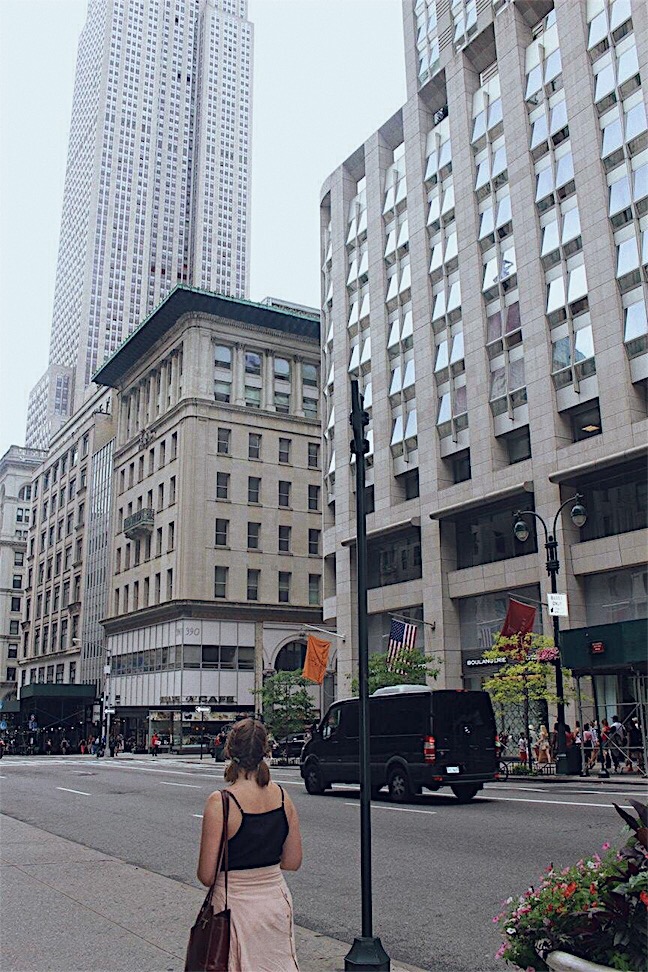 It is a very strange experience to go from reading an account of life in a concentration camp to stepping out into the sunny streets of the upper east side in June. My limbs were stiff because I had been clenching my body as I read the accounts of starvation, frozen limbs, and incomprehensible suffering. A particularly horrible episode of a twelve-year-old boy having his frostbitten toes picked off with tweezers particularly stuck in my mind.
It is a very strange experience to go from reading an account of life in a concentration camp to stepping out into the sunny streets of the upper east side in June. My limbs were stiff because I had been clenching my body as I read the accounts of starvation, frozen limbs, and incomprehensible suffering. A particularly horrible episode of a twelve-year-old boy having his frostbitten toes picked off with tweezers particularly stuck in my mind.
How silly, I thought, as I absently noted my stiff limbs, to even remark on the physical suffering I experience reading this when it is nothing in comparison to the suffering of the writer. How contradictory, to muse peacefully on the inhumane suffering of holocaust survivors while I soak up the late afternoon sunshine in the ‘land of the free’. I thought back on the mild discomfort I had felt in the previous week. Mostly, it had been homesickness. The struggle to adapt to a new city, new people, and a new job all at once. The stress that my brain felt was taken out on my body and I had been tired and often close to tears of fatigue for four days.
But I laughed at myself. I was so happy to be in New York City, and in the middle of my second week the fetters of heartache were already fading. To absently compare my genuine but mild sufferings to the physical, psychological, and spiritual suffering of Victor Frankl and the other Holocaust victims was absurd.
In the last two years on a progressive university campus, I had been taught to never compare my own sufferings to the sufferings of others. As a young, Canadian woman, there is no chance I could relate to the sufferings of a holocaust survivor. I am not a victim of the systematic oppression and torture that Victor Frankl and his comrades experienced. I was right, by this standard, to stop, even absentmindedly, comparing myself to Frankl and his companions.
And yet, the connection had been automatic. Without having been forced, my mind had drawn a line between two things the world had presented to me. It was a natural thing to relate my own subjective experience of discomfort to the one that I had just been reading about.
In A Man’s Search for Meaning, Frankl says this: “A man’s suffering is similar to the behavior of gas. If a certain quantity of gas is pumped into an empty chamber, it will fill the chamber completely and evenly, no matter how big the chamber. Thus, suffering completely fills the human soul and conscious mind, no matter whether the suffering is great or little. Therefore the “size” of human suffering is absolutely relative.” [1] There is great beauty in this description of suffering. We are all filled up with suffering at some point in our lives. While each of our experiences of it are subjective, there is a universal understanding of what it is to suffer.
Without glamour or sentimentality, the suffering of all humanity can be beautiful. Just as Frankl and his companions had a choice as to how they would approach their heinous situation, so do I, on the streets of Manhattan, have a choice on how I approach to minor sufferings of my own situation. While I cannot experience what the holocaust victims experienced -and I have no desire to do so- I can unite myself with them, and all humans who are suffering, have suffered, and will suffer in the world.
[su_divider top=”no”]
Written by Barbara Egan, a current intern at the WYA North America office.
[1] Frankl, Victor. A Man’s Search for Meaning. World Youth Alliance Certified Training Program. p. 75-108. p.89







